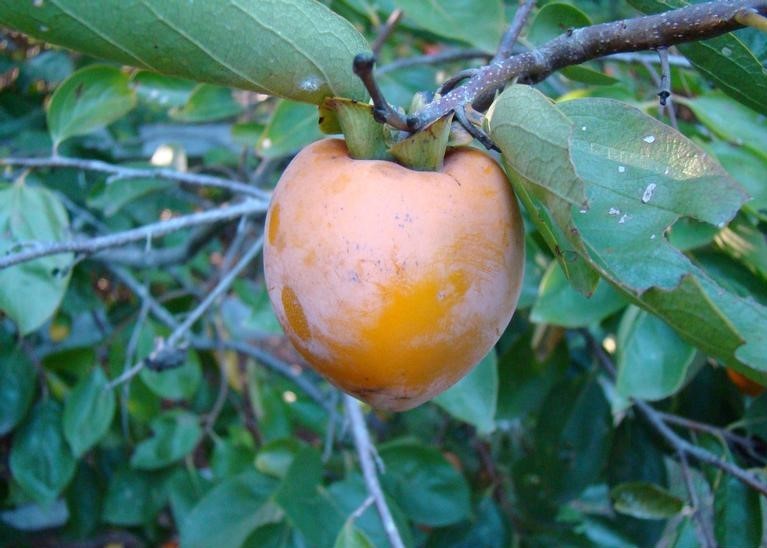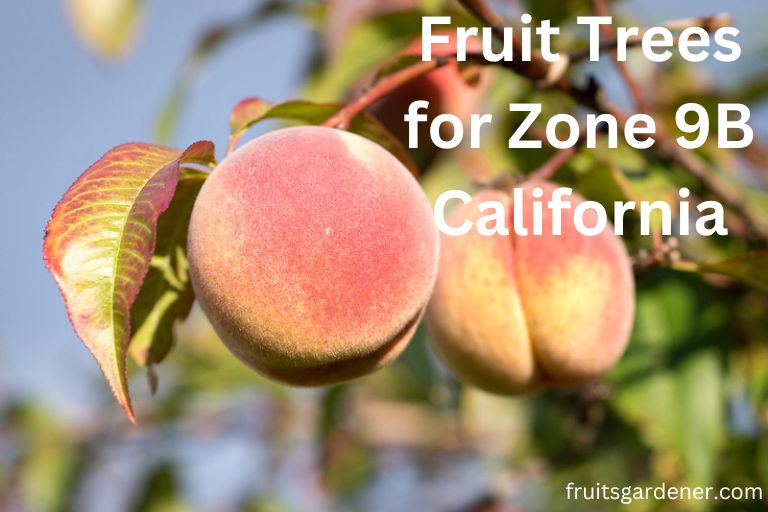This content is for informational purposes only and does not constitute financial, legal, or professional advice. Always consult a certified professional before making financial or investment decisions. As an affiliate, we may earn a commission from qualifying purchases made through links in this post at no extra cost to you.
Fruit trees are a wonderful addition to any home garden, providing fresh, delicious fruit for the entire family to enjoy. But if you live in an area with a short growing season, or if you don’t have much space for a full-sized tree, self-pollinating fruit trees are a great option. But, what are the self pollinating fruit trees zone 9?
Zone 9 is home to many different types of self-pollinating fruit trees, including apples, pears, plums, and cherries. There are many benefits to self-pollinating fruit trees. They are easier to care for and produce fruit more consistently than cross-pollinated varieties. Self-pollinating fruit trees are also less likely to be affected by weather conditions and pests.
However, there are a few things to keep in mind when growing self-pollinating fruit trees. They need to be pruned regularly to encourage fruiting, and they may not produce as much fruit as cross-pollinated varieties. Additionally, self-pollinating fruit trees can be more susceptible to disease because they lack the genetic diversity of other types of trees.
Despite these potential drawbacks, self-pollinating fruit trees offer many benefits that make them worth considering for your home orchard. With proper care, they will provide you with delicious fruits for years to come.
How Do You Know If a Fruit Tree is Self-Pollinating In Zone 9?
Determining if a fruit tree is self-pollinating in Zone 9 can be done through a combination of research and understanding the specific characteristics of the tree species. Here are a few ways to determine if a fruit tree is self-pollinating:
Research the tree species:
Start by researching the specific fruit tree species you are interested in. Look for information on its pollination requirements and whether it is classified as self-pollinating or requires cross-pollination.
Check the tree’s flowering behavior:
Self-pollinating fruit trees often have flowers that contain both male and female reproductive organs, allowing them to pollinate themselves. Look for flowers that have both stamens (male parts producing pollen) and pistils (female parts containing the ovary).
Consider the fruit tree’s fruit set:
Self-pollinating trees are capable of setting fruit without the need for cross-pollination from another tree. If you observe fruits consistently developing on a single tree without the presence of other pollinator trees nearby, it’s likely a self-pollinating variety.
Consult with local experts or nurseries:
Seek advice from local horticultural experts or visit nurseries in your area. They can provide information specific to Zone 9 and offer guidance on self-pollinating fruit tree varieties that thrive in your region.
Read variety descriptions and labels:
When purchasing fruit trees, check the variety descriptions or labels provided by nurseries. They often indicate whether the tree is self-pollinating or requires cross-pollination.
Remember that even self-pollinating trees can benefit from cross-pollination, as it may improve fruit set and yield. If space permits, planting multiple compatible varieties can enhance pollination and increase fruit production.
Top 8 Best And Easy Self Pollinating Fruit Trees Zone 9
In Zone 9, which is typically characterized by mild winters and warm summers, there are several self-pollinating fruit trees that you can consider planting. Self-pollinating trees have both male and female flower parts, allowing them to produce fruit without the need for cross-pollination from another tree. Here are some self-pollinating fruit trees that can thrive in Zone 9:
Satsuma Mandarin (Citrus reticulata ‘Satsuma’):
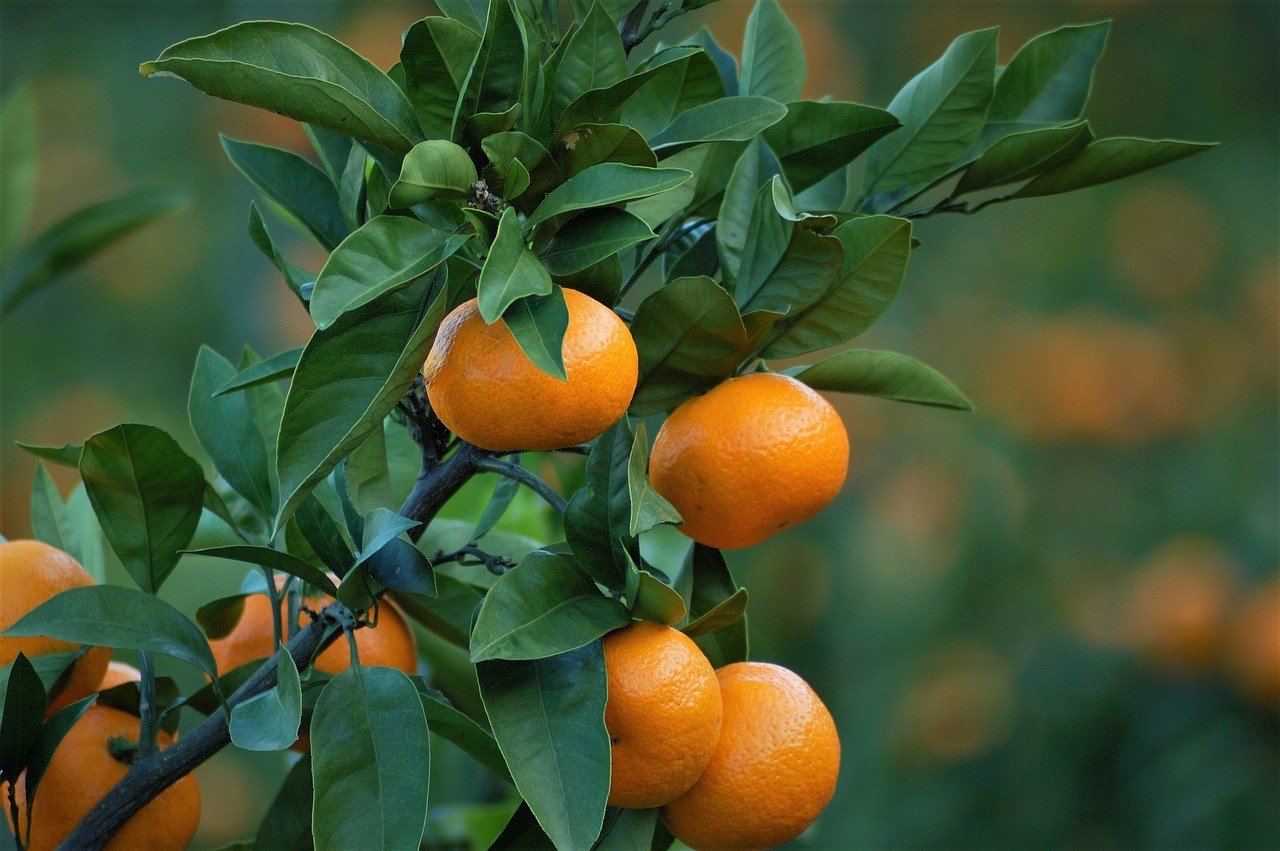
This citrus tree is a popular choice for Zone 9. It produces seedless, easy-to-peel fruits with a sweet and tangy flavor. It is an excellent choice for those looking to grow self-pollinating fruit trees in Zone 9.
Known for their cold-hardiness and tolerance to a range of climates, Satsuma Mandarin trees can thrive in the mild winters and warm summers of Zone 9 regions. This citrus tree bears abundant, seedless fruits that are easy to peel, making them a popular choice for fresh eating and juicing.
With their sweet and tangy flavor, Satsuma Mandarins are a delightful addition to any home orchard or garden in Zone 9.
Meyer Lemon (Citrus x meyeri):

Meyer lemons are a cross between a lemon and a mandarin orange. They are self-pollinating and bear fragrant, thin-skinned fruits that are sweeter than traditional lemons. It is an ideal self-pollinating fruit tree for gardeners in Zone 9. With its ability to tolerate mild winters and thrive in warm summers, the Meyer Lemon is a popular choice for citrus enthusiasts in this region.
This tree produces fragrant and thin-skinned lemons that have a sweeter flavor compared to regular lemons. Its compact size makes it suitable for small spaces and containers, making it a versatile option for urban gardens as well.
Whether used for culinary purposes or simply enjoyed as a refreshing snack, Meyer Lemons bring a touch of vibrant citrus flavor to Zone 9 gardens, making them a wonderful addition to any fruit tree collection.
Fig (Ficus carica):
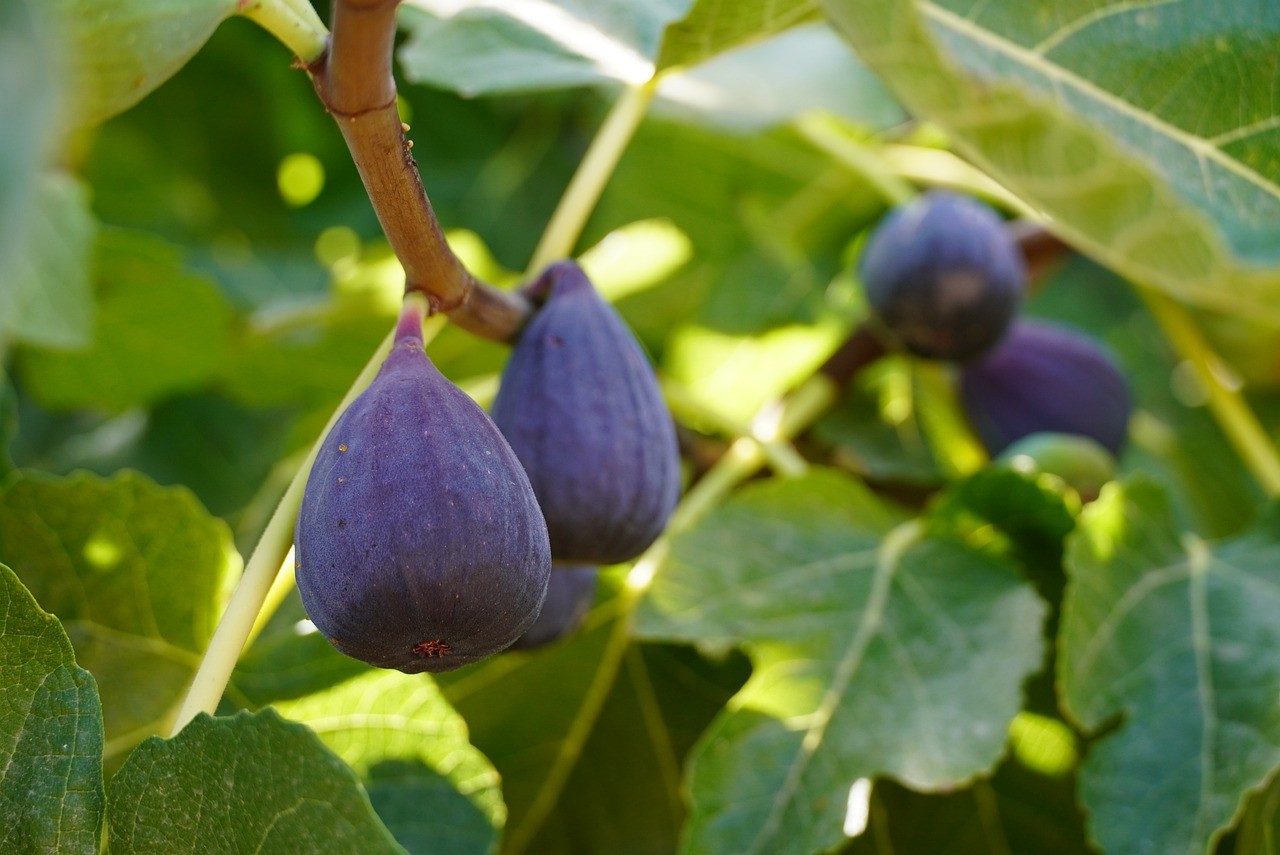
Many varieties of fig trees are self-pollinating and can grow well in Zone 9. They produce delicious, sweet fruits and are relatively low-maintenance. It is a fantastic self-pollinating fruit tree that thrives in Zone 9 climates. With its ability to withstand the mild winters and warm summers of this region, the fig tree is a reliable and rewarding addition to any garden.
The tree produces delicious, sweet fruits known as figs that can be enjoyed fresh or used in a variety of culinary applications. What makes fig trees particularly appealing is their low-maintenance nature and drought tolerance once established.
Their attractive, lobed leaves also add beauty to the landscape. Whether grown in the ground or in containers, fig trees are a delightful choice for Zone 9 gardeners seeking a self-pollinating fruit tree that delivers both flavor and ornamental value.
Pomegranate (Punica granatum):

Several self-pollinating pomegranate cultivars are suitable for Zone 9. Pomegranates are known for their juicy, antioxidant-rich arils. It is a self-pollinating fruit tree that thrives in the favorable conditions of Zone 9. With its ability to tolerate the mild winters and warm summers of this region, pomegranate trees are a popular choice for gardeners looking to grow their own fruits.
These trees produce beautiful and vibrant fruits called pomegranates, which are known for their juicy, ruby-red arils packed with antioxidants. The pomegranate tree’s attractive, glossy foliage adds ornamental value to the landscape as well.
With their relatively low maintenance requirements and drought tolerance once established, pomegranate trees are a delightful and rewarding addition to any Zone 9 garden, offering both visual appeal and a bountiful harvest of delicious and nutritious fruits.
Olive (Olea europaea):

Olive trees are self-pollinating and can thrive in Zone 9 climates. They produce small, oval-shaped fruits that are harvested for their oil or cured for eating. It is an excellent choice for those seeking self-pollinating fruit trees in Zone 9. These hardy trees can thrive in the mild winters and warm summers of this region, making them well-suited for Zone 9 climates.
Olive trees produce small, oval-shaped fruits that are harvested for their oil or cured for eating. With their silver-green foliage and gnarled trunks, olive trees also possess a distinctive beauty that adds charm to any garden landscape. Their self-pollinating nature eliminates the need for multiple trees for cross-pollination, making them an ideal choice for smaller gardens or limited spaces.
Furthermore, olive trees are known for their drought tolerance and adaptability, making them a resilient and rewarding addition to Zone 9 gardens, providing both culinary delights and aesthetic appeal.
Persimmon (Diospyros kaki):
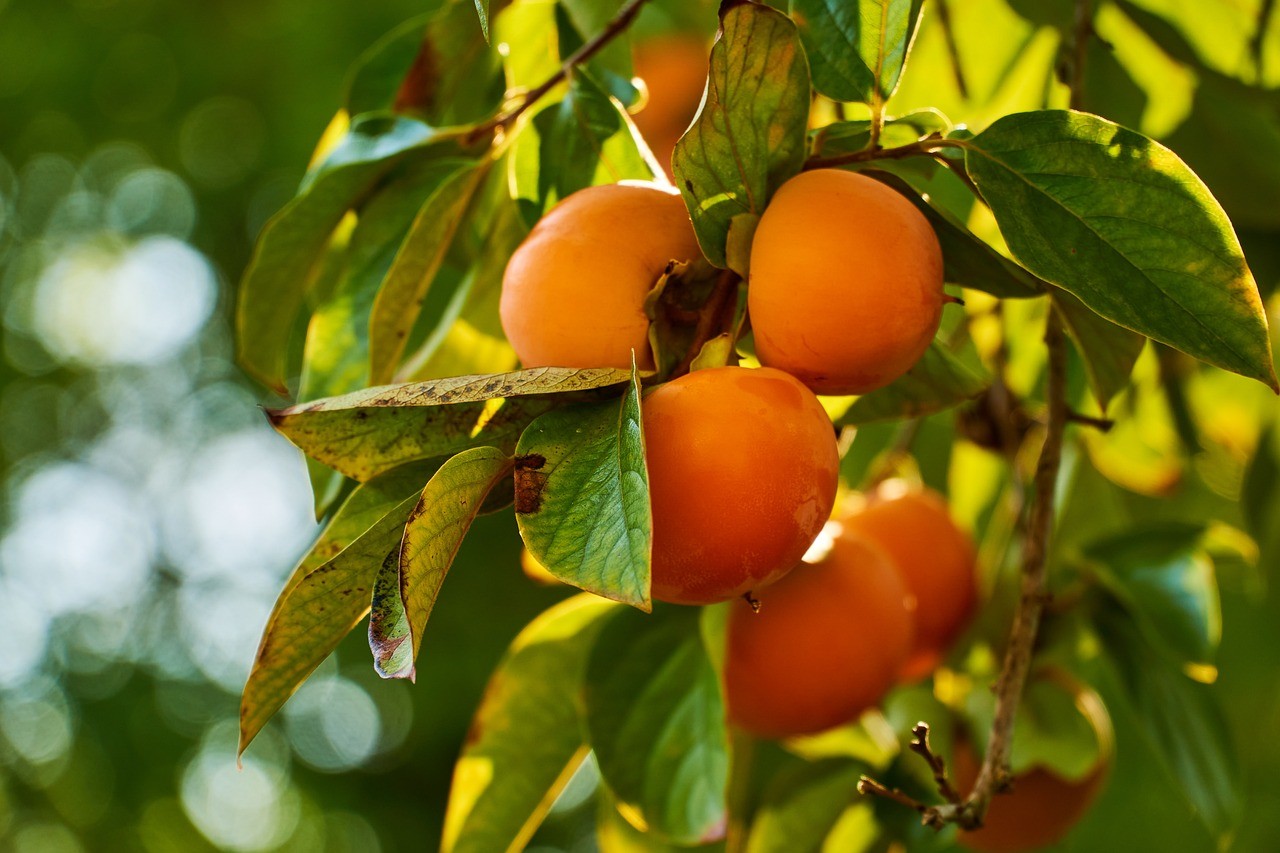
There are self-pollinating persimmon varieties available, such as ‘Fuyu’ and ‘Jiro,’ which are well-suited to Zone 9. These trees bear sweet, non-astringent fruits. This self-pollinating fruit tree thrives in the favorable conditions of Zone 9. With its ability to tolerate the mild winters and warm summers of this region, persimmon trees are an excellent choice for gardeners looking to grow their own fruits.
These trees produce sweet, flavorful fruits that are enjoyed fresh or used in various culinary applications. The self-pollinating nature of persimmon trees ensures that a single tree can set fruit without the need for cross-pollination. With their attractive, glossy foliage and vibrant orange fruits, persimmon trees also add aesthetic appeal to the garden.
Additionally, persimmons are known for their adaptability and low maintenance requirements once established, making them a rewarding and fruitful addition to any Zone 9 garden.
Loquat (Eriobotrya japonica):

Loquat trees are self-pollinating and can be a great addition to a Zone 9 garden. They produce small, tangy fruits with a unique flavor. This self-pollinating fruit tree thrives in the favorable conditions of Zone 9. With its ability to tolerate the mild winters and warm summers of this region, loquat trees are an excellent choice for gardeners seeking a unique and delicious fruit.
Loquats produce small, tangy fruits that are enjoyed fresh, cooked, or used in preserves and desserts. The self-pollinating nature of loquat trees ensures that a single tree can set fruit without the need for cross-pollination from another tree.
Beyond its fruits, the loquat tree also offers ornamental value with its large, glossy leaves and beautiful clusters of fragrant white flowers. With their adaptability, low maintenance requirements, and the bonus of a delectable harvest, loquat trees make a delightful addition to any Zone 9 garden.
Guava (Psidium guajava):

Some guava varieties, such as ‘Ruby Supreme’ and ‘Tropical Pink,’ are self-pollinating and can thrive in Zone 9. Guavas have a tropical flavor and are rich in vitamin C. It is a self-pollinating fruit tree that thrives in Zone 9 climates. With its ability to withstand the mild winters and warm summers of this region, guava trees are a popular choice for gardeners looking to cultivate their own tropical fruit.
These trees produce delicious and aromatic fruits that are rich in vitamin C and have a distinct, tropical flavor. The self-pollinating nature of guava trees means that a single tree can set fruit without the need for cross-pollination. With their attractive evergreen foliage and small, white flowers, guava trees also add ornamental value to the landscape.
Moreover, guava trees are relatively low-maintenance, making them a practical choice for Zone 9 gardens. Whether enjoyed fresh, juiced, or used in various culinary creations, guava trees offer a delightful and self-sufficient fruiting experience in Zone 9.
When selecting fruit trees for your garden, consider factors like soil quality, sunlight exposure, and available space. It’s also important to research specific varieties that are well-suited for your specific location within Zone 9, as microclimates can vary.

